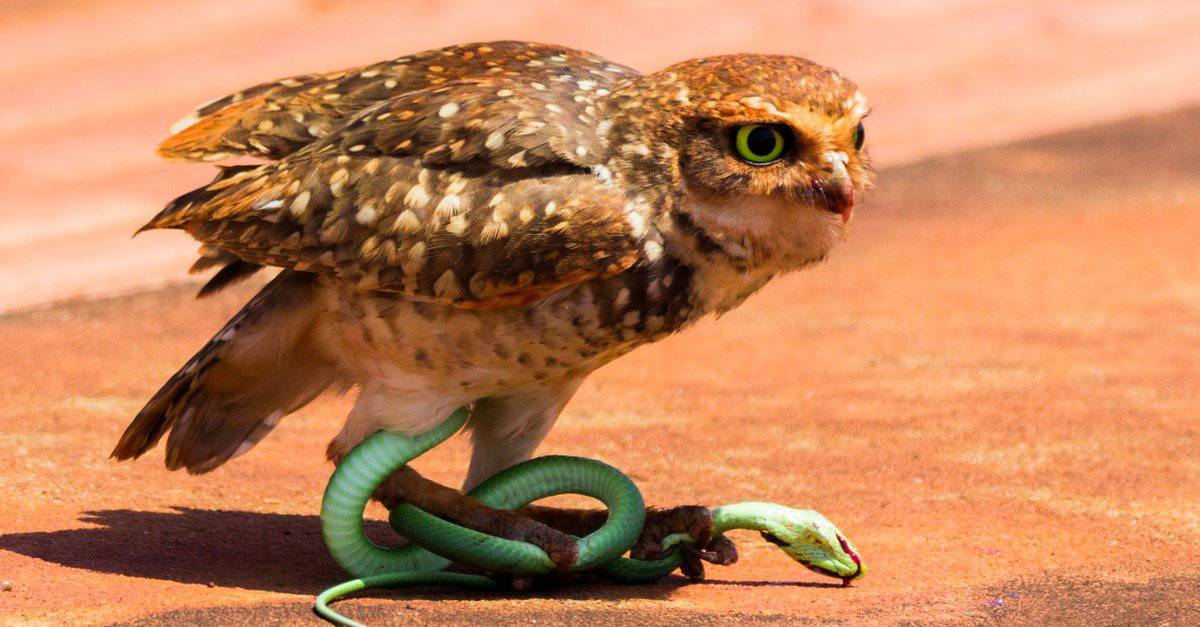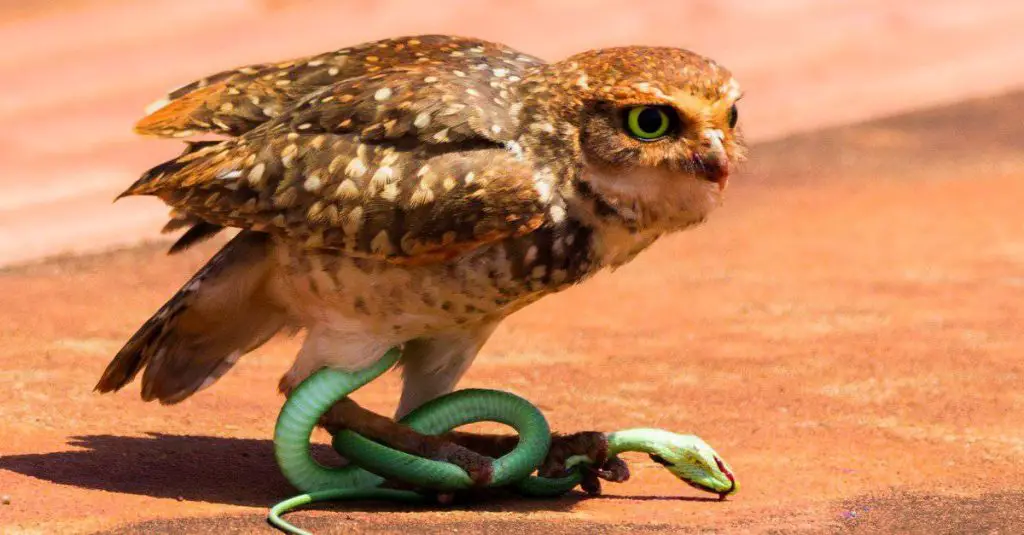Have you ever wondered what kind of animals are bold enough to prey on vipers? These venomous snakes may be feared by many, but they too have their own predators in the wild.
From fierce birds of prey to cunning mammals, there are a variety of creatures that feed on vipers. Join us as we explore the dangerous game of predator and prey in the world of vipers and their natural enemies.
Vipers are known to be venomous snakes, but they still have their own predators. Some animals that eat vipers are mongoose, hawks, eagles, and other snakes. Mongoose, in particular, are known for their ability to take down venomous snakes like vipers.

What Eats Vipers? – A Look at the Predators of Venomous Snakes
Vipers are venomous snakes known for their deadly bites, and they have a reputation for being fierce predators. However, these fearsome reptiles are not invincible, and there are predators out there that can take them down. In this article, we will take a look at some of the animals that prey on vipers and how they manage to hunt these dangerous snakes.
1. Birds of Prey
Birds of prey, such as hawks, eagles, and owls, are known for their sharp talons and powerful beaks, which they use to hunt and kill their prey. Vipers are no exception, and these birds are known to prey on snakes, including vipers. Birds of prey have excellent eyesight and can spot a viper from a distance, even when it is camouflaged in its surroundings. Once they spot their target, they swoop down and grab the snake with their talons, using their sharp beaks to kill it quickly.
However, birds of prey need to be careful when hunting vipers, as they are venomous and can strike back if they feel threatened. Some birds have been known to die after being bitten by vipers, so they need to be careful when attacking these snakes.
2. Mongooses
Mongooses are small carnivorous mammals that are known for their ability to kill snakes. They are fast and agile, and they use their sharp teeth and claws to take down their prey. Vipers are no match for these ferocious little creatures, and they often fall victim to mongoose attacks.
Mongooses are immune to snake venom, which makes them ideal predators of vipers. They can attack the snake repeatedly without fear of being poisoned, and they can kill the snake quickly by breaking its neck with a swift bite.
3. Other Snakes
Believe it or not, some snakes prey on other snakes, including vipers. King snakes and rat snakes are known to be immune to viper venom, and they will often hunt these snakes for food. These snakes use their powerful constricting muscles to suffocate vipers, and they can kill them quickly and efficiently.
However, hunting vipers can be risky for other snakes, as they need to avoid being bitten by the venomous fangs. To protect themselves, some snakes have developed immunity to viper venom, while others have learned to attack from behind to avoid being bitten.
4. Wild Boars
Wild boars are large, powerful animals that are known for their aggressive nature. These animals are omnivorous and will eat anything they can find, including vipers. Despite their thick skin and fur, wild boars are not immune to snake venom, and they can be killed by a viper’s bite if they are not careful.
However, wild boars have a powerful sense of smell, which allows them to detect vipers from a distance. They can use their sharp tusks to kill vipers quickly, and they can even eat the snake whole without being harmed by the venom.
5. Humans
While not a natural predator of vipers, humans are known to hunt and kill these snakes for various reasons. In some cultures, vipers are considered a delicacy and are hunted for their meat. In other cases, vipers are hunted for their venom, which is used to make antivenom and other medical treatments.
However, hunting vipers can be dangerous, as they are venomous and can strike back if they feel threatened. It is important to handle vipers with care and to avoid getting bitten by these deadly snakes.
6. Benefits of Vipers
Despite their reputation as dangerous predators, vipers play an important role in their ecosystem. They are top predators and help to control the population of other animals, including rodents and other reptiles. They are also important indicators of the health of an ecosystem and can be used to monitor changes in the environment.
Vipers also have medicinal properties, and their venom is used to make antivenom and other medical treatments. Some compounds in viper venom have been found to have anti-inflammatory and pain-relieving properties, which could be used to develop new drugs.
7. Vipers vs. Venomous Snakes
Vipers are often confused with other venomous snakes, such as cobras and rattlesnakes. While they are all venomous, there are some key differences between these snakes. Vipers have triangular heads and slit-like pupils, while cobras have round heads and large eyes. Rattlesnakes have a distinctive rattle on their tail, which they use to warn predators and prey.
Vipers also have a unique feeding behavior, where they strike and inject venom into their prey, then wait for the venom to take effect before consuming their meal. Cobras and rattlesnakes, on the other hand, usually bite their prey and then consume it immediately.
8. Viper Habitat
Vipers are found in a variety of habitats, including forests, deserts, and grasslands. They are often found near water sources, such as rivers and streams, where they can hunt for prey. Vipers are also known for their ability to camouflage themselves in their surroundings, which helps them to avoid predators and sneak up on their prey.
9. Viper Diet
Vipers are carnivorous and feed on a variety of animals, including rodents, lizards, and other snakes. They are ambush predators and will often wait for their prey to come to them. Once they have located their prey, they will strike and inject venom into their victim, then wait for the venom to take effect before consuming their meal.
10. Conclusion
In conclusion, vipers are fierce predators that are not invincible. They have natural predators, including birds of prey, mongooses, other snakes, wild boars, and even humans. Despite their reputation, vipers play an important role in their ecosystem and have medicinal properties that could be used to develop new drugs. It is important to handle vipers with care and to avoid getting bitten by these deadly snakes.
Frequently Asked Questions
Here are some commonly asked questions related to vipers and their predators.
What animals eat vipers?
Vipers are preyed upon by several animals, including birds, mammals, and even other snakes. Some of the common predators of vipers include:
1. Birds: Raptors such as hawks, eagles, and owls are known to prey on vipers. They use their sharp talons to grab and kill the snake.
2. Mammals: Mammalian predators of vipers include foxes, badgers, mongooses, and wild boars. These animals have a good sense of smell and can locate vipers even when they are hidden in the vegetation.
3. Other snakes: Some species of snakes such as king snakes and mongoose snakes are known to prey on vipers. They are immune to the venom of vipers and can kill them easily.
Do vipers have any defense mechanisms against their predators?
Yes, vipers have several defense mechanisms to protect themselves from their predators. Some of these are:
1. Venom: Vipers are venomous snakes and can inject venom into their predators. This venom can cause severe pain, paralysis, and even death.
2. Camouflage: Vipers have a unique coloration and pattern that helps them blend into their surroundings. This makes it difficult for their predators to spot them.
3. Body size: Vipers can grow up to several feet in length, which makes them too large for some predators to handle.
Are vipers at the top of the food chain?
No, vipers are not at the top of the food chain. They are preyed upon by several animals, as mentioned above.
However, vipers are apex predators in their own right and play an important role in their ecosystem. They help control the population of rodents and other small animals, which can cause damage to crops and other vegetation.
Can humans eat vipers?
Yes, humans can eat vipers, but it is not recommended. Vipers are venomous snakes, and their venom can be fatal to humans. Even if the snake is cooked, the venom can still be present in its flesh, which can cause serious health problems.
In some countries, vipers are considered a delicacy and are consumed as part of traditional cuisine. However, it is important to exercise caution and seek expert advice before consuming any type of snake.
Do vipers have any predators when they are young?
Yes, even young vipers have predators. However, the predators of young vipers are different from those of adult vipers. Some of the common predators of young vipers include:
1. Birds: Birds such as crows and herons are known to prey on young vipers.
2. Lizards: Some species of lizards such as monitor lizards and geckos are known to feed on young vipers.
3. Small mammals: Young vipers are also preyed upon by small mammals such as rodents and shrews.
In conclusion, vipers are fascinating creatures that are an essential part of the food chain. While they are known for their venomous bites and their ability to hunt small prey, they are also preyed upon by a variety of animals. From birds of prey like hawks and eagles to larger predators like jaguars and mongooses, vipers are always at risk of being hunted.
Despite their reputation for being dangerous, vipers play an important role in maintaining the balance of their ecosystem. By controlling the populations of small mammals and reptiles, they help to prevent overgrazing and the spread of disease. In this way, they are a critical component of the natural world.
In the end, the question of what eats vipers is just one small part of the larger story of these fascinating creatures. Whether we are studying their hunting habits, their unique adaptations, or their place in the food chain, there is always more to learn and discover about these remarkable animals.


